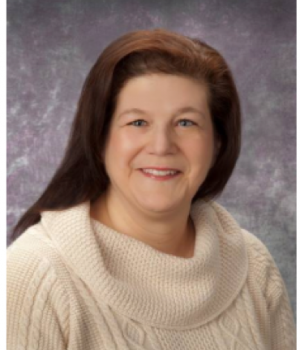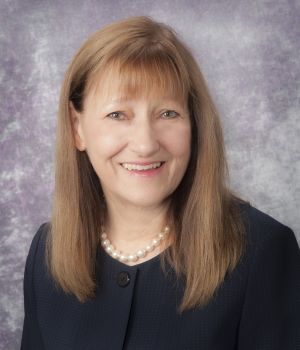The Clinical Nurse Specialist Role
Chris Divens MSN, RN, CPN,Beverly Kosmach-Park DNP, RN, FAAN
Children’s Hospital of Pittsburgh, USA.
-
Question: What is a Clinical Nurse Specialist?
Clinical Nurse Specialists (CNS) have a dynamic advanced practice nursing role that varies by clinical focus, independent practice, and the healthcare team and setting. In the Unites States, a CNS is one of four designated and licensed advanced practice nursing (APN) roles in addition to nurse practitioner, nurse anesthetist, and nurse midwife. CNSs hold a bachelor’s degree in nursing and graduate level education with an MSN, DNP or PhD. CNS practice includes several competencies of advanced practice nursing: direct clinical practice, expert coaching and guidance, consultation, research, leadership, collaboration and ethical decision-making.
-
Question: What do you like best about your role as a CNS in pediatric transplant?
Most importantly, we both enjoy the individualized and personal interactions with our patients and families in the abdominal transplant programs and watching them progress through their transplant “journey.” From the CNS perspective, being a part of this process is very rewarding - from the transplant evaluation to transplant surgery, then the immediate post-operative period into chronic care and eventually transition to adult care. We guide the education process as they learn about the diagnosis leading to transplant, then support them as their understanding of post-transplant care develops and they reintegrate into family, school and community life, finding their “new normal.” We also help them at various time points as they adapt to the chronicity of transplant by reviewing and reinforcing transplant education during new onset rejection or when co-morbidities develop, or as consultants to work with them on adherence, psychosocial issues, and developing independence with self-care. It is rewarding to collaborate with the multidisciplinary transplant team within autonomous CNS practice to meet the department’s strategic goals and improve patient outcomes.
In addition to direct patient care, we also benefit from networking with other CNSs and Allied Health Professional’s (AHP) through professional organizations to improve practice. We are active in several transplant and nursing organizations and have experiences in executive leadership, committee chair positions and projects, and conference planning. There are many opportunities for professional growth in these organizations and working with our colleagues from other transplant centers enhances our practice.
-
Question: What are the challenges in carrying out your role as a CNS?
In the current era of downsizing, it is often difficult to accomplish our goals or to work on projects as thoroughly as we would like due to staffing and time limitations. With clinical work being a priority, other projects to enhance patient care are on hold until there is available time. In networking with other AHPs, we find this to be a common challenge. Everyone would like a few months’ “sabbatical” to complete a project thoroughly! From the broader perspective, there is often confusion about the CNS role within institutions, nationally and internationally. Although the CNS role has defined competencies, there is wide variability in responsibilities among transplant centers and other institutions. -
Question: Describe a routine day?
As with most AHP practice, there is usually not a routine day – but that’s what keeps it interesting! Our priority each day is the in-patient unit, providing post-transplant education, preparing patients and families for discharge and being responsive to acute events on the unit. We also meet with patients and families as part of the transplant evaluation. Liver evaluations are usually completed outpatient over a 3-day period and the intestine evaluations are a 5-day inpatient admission. We have psychosocial multidisciplinary rounds every week to discuss psychosocial issues affecting the inpatients and to strategize interventions. Discharge plans are reviewed and potential admissions discussed. We are also involved with committee work within the hospital and in our various organizations. Bev has been focusing on our transition program, meeting with teens during their annual clinic appointment for transition readiness assessment and education, and developing content for a transition website. Chris is involved with various QI and Nursing Division initiatives on the transplant unit, most recently involving readmissions, infection prevention strategies, safety rounds, and the abdominal transplant nursing fellowship program.
-
Question: What’s something you have found rewarding or are proud of that you have accomplished?
Chris:
My role as a transplant CNS is very rewarding. I enjoy the opportunity to meet patients and families from other countries and recently was working with families from Italy, Spain and Montenegro – all within the same week! Another aspect of my role that I find very rewarding is the opportunity to work with the transplant staff, particularly in coordinating the Transplant Nursing Fellowship Program. This program provides an opportunity for nurses who have an interest in developing a career in transplant nursing to expand their transplant knowledge and experiences. This may include observing transplant surgery, shadowing other team members, and having small group sessions with experienced transplant professionals. It’s personally rewarding to see the nursing fellows begin with a certain level of expertise and progress to a higher level of knowledge and a broader level of understanding and insight that can be utilized at the bedside with our families.
Beverly :
I feel very fortunate that my career placed me in Pittsburgh in the early days of pediatric liver and intestine transplant and to have experienced the development of transplant through working with our patients, families and the multidisciplinary team. I am proud of my clinical work throughout the years and seeing our patients do so well in the long term. Another rewarding experience has been as Director of Camp Chihopi, which has provided the opportunity for our campers to develop long-lasting friendships and peer support with other transplant recipients. Additionally, being inducted as a Fellow of the American Association of Nursing has been an important personal and professional accomplishment. -
Question: What you would tell RNs who are interested in the CNS role?
Chris:
I love my role as a CNS! To me, it’s a unique role that can impact every area of patient care. As a CNS, you can make a difference in patient outcomes. It could be that individual one-on-one time, hand-holding, or just getting to really know the patient. We go beyond just the diagnoses to understand their perspective of recovery and adapting to transplant as a manageable chronic condition. We provide the family with the knowledge and skills to adapt. The CNS role definitely adds value to the organization as well as improving patient outcomes.
Beverly:
I think Chris said it well! It’s such a dynamic role with so many opportunities. Nurses who are interested in the role may find the website of the National Association of Clinical Nurse Specialists to be helpful. https://nacns.org/about-us/what-is-a-cns/ Here’s a website for Specialist Nurses from the Royal College of Nursing in the UK: https://www.rcn.org.uk/professional-development/advanced-practice-standards -
Question: How does IPTA membership add to your role of a CNS in transplant?
We have both been members of IPTA for several years and have enjoyed the various educational opportunities and networking with other pediatric providers in transplantation. It’s so great to have an organization that is focused specifically on pediatric transplantation. The collaboration of all pediatric transplant professionals within IPTA is what makes this organization unique. Programming for the biannual symposia includes content for all team members and truly represents the importance of the multidisciplinary team in transplant. Participating in the Allied Health Professional Committee within IPTA has been an enjoyable experience, particularly in networking opportunities and project collaboration. We strongly encourage all allied health providers to consider membership in IPTA to enhance their transplant careers!
Contact
Address
The Transplantation Society
International Headquarters
740 Notre-Dame Ouest
Suite 1245
Montréal, QC, H3C 3X6
Canada
Используйте Вавада казино для игры с бонусом — активируйте промокод и начните выигрывать уже сегодня!


